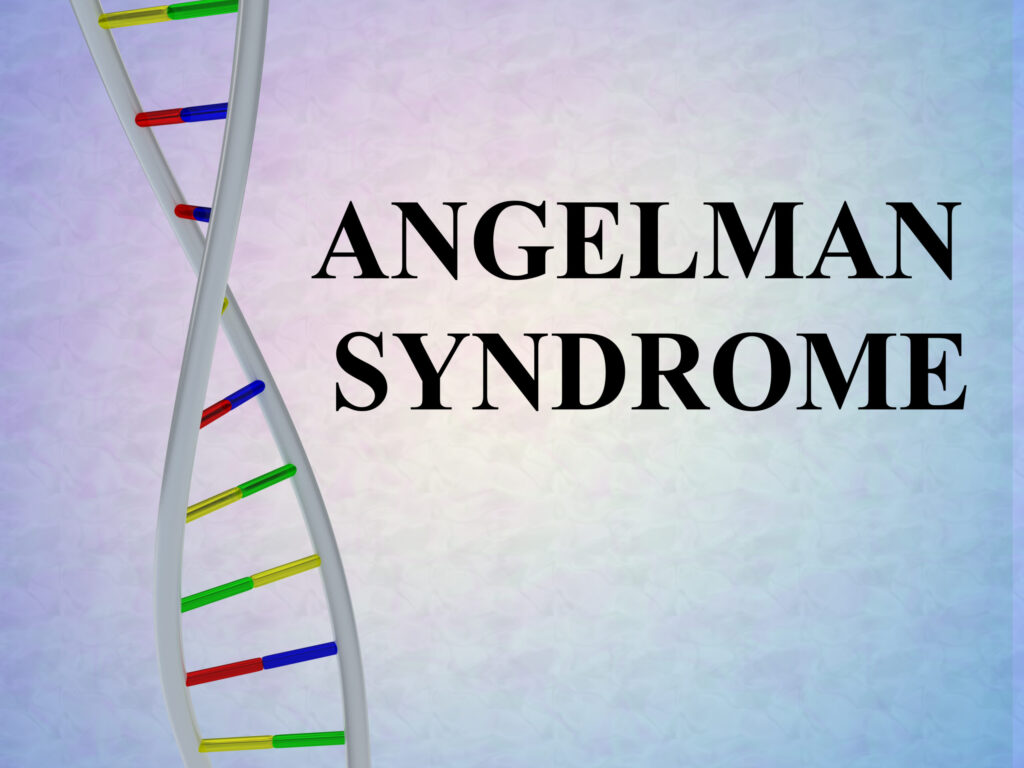What is Angelman syndrome?
Angelman syndrome is a rare disease, affecting around 500,000 people around the world. It is one of the more common rare diseases, occurring in about 1 in every 12,000 to 20,000 live births, roughly averaging 1 in 15,000, in the US.
The main symptoms of the syndrome include developmental delay, sleep disturbances, and seizures.
It is generally not inherited, with each case being a de novo or new gene mutation, and the first of a kind in the family. This is because the syndrome is a microdeletion syndrome, and the gene change that causes it, is random and spontaneous.
The symptoms
Angelman is not usually identifiable before or just after birth. The main signs of Angelman syndrome are usually noticed later in childhood and may include a combination of the following:
- Global developmental delay
- Very limited to absent speech
- Seizures
- Issues with balance, and walking
- A happy, excitable personality including frequent laughing
- Teeth abnormalities
- Tongue abnormalities, including a protruding tongue
- Behavioral issues
- Issues involving sleep
- Low muscle tone
- The curvature of the spine
- Issues with skin pigmentation and coloring
- Hyperactivity
- Obesity
- Drooling
- Unique facial features- wide mouth, deeply set eyes, a small head, widely spaced teeth, cross-eyes
- Feeding difficulties in infancy
Genetic diagnosis for Angelman: the process
Diagnosing Angelman may involve one of several genetic testing for Angelman syndrome options. These will attempt to identify the gene mutation, in the UB3A gene, which is responsible for causing the syndrome.
- Chromosome analysis: this studies the size, shape, and number of chromosomes in a cell.
- Fluorescent in situ hybridization: this identifies if any chromosomes are missing.
- DNA methylation test: to understand and identify if both copies of the gene, with one being received from each parent, are active.
- Sequencing of the UB3A gene: to identify a mutation in the maternal copy of the gene, as this can cause a very rare type of Angelman syndrome.
Genetic diagnosis for Angelman syndrome: genetic counseling
Genetic counseling is an important part of the genetic diagnosis process for all rare diseases. When faced with a possible diagnosis of Angelman syndrome, genetic counseling is important for the following reasons:
- It will emotionally support rare disease patients and their families through the testing process
- It will recommend the most suitable genetic testing options for identifying Angelman syndrome
- It will explain the symptoms of the syndrome, including recommendations for early intervention and treatment, and understand them to ensure a more accurate diagnosis
- It will help coordinate the medical staff and professionals involved in the long-term care of someone with Angelman syndrome
A genetic diagnosis of Angelman syndrome will be life-changing for many families. Receiving an accurate diagnosis is an important first step to make sure that the lifelong management of the syndrome ensures the best care for the individual diagnosed. The more we understand about how Angelman can be diagnosed, and how rare disease patients can be supported both during their diagnostic journey and after it, the better the long-term care outcomes will be.



